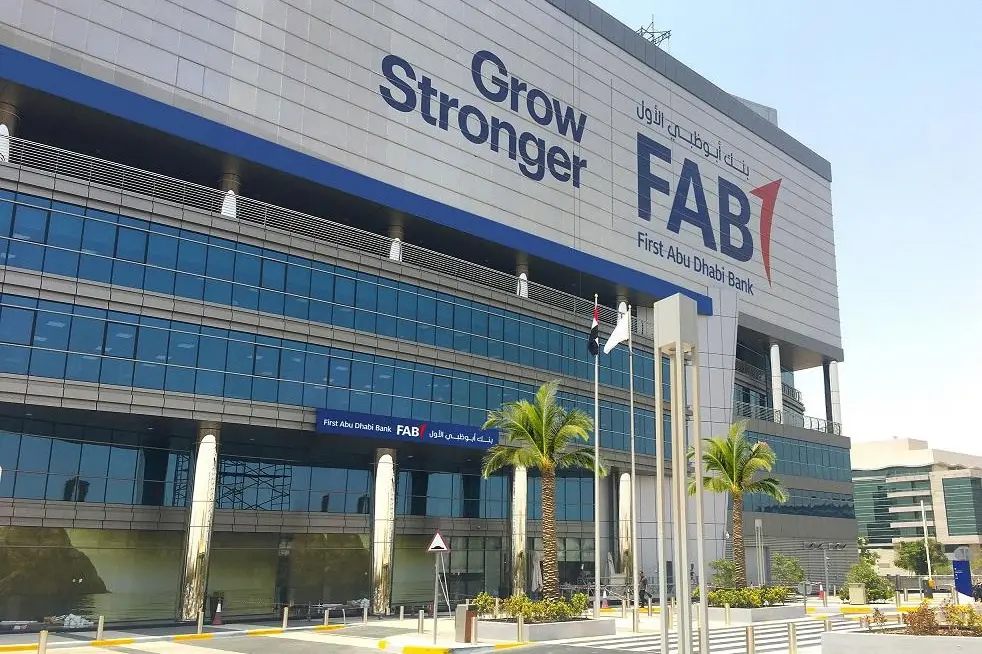PHOTO
(The closing price for Saudi Arabia's index in the final paragraph was updated).
Shares in First Abu Dhabi Bank (FAB), the largest bank in the United Arab Emirates, rose on Sunday after the bank reported a rise in fourth quarter (Q4) 2018 net profit.
The bank announced a Q4 2018 net profit of 2.93 billion UAE dirhams ($797.7 million) compared to 2.82 billion UAE dirhams for Q4 2017, translating into a 3.9 percent increase.
For the full year, FAB recorded a net profit of 12 billion UAE dirhams, which was a 10.1 percent increase on the 10.9 billion dirhams profit in 2017.
FAB’s shares added 1.76 percent on Sunday, pushing Abu Dhabi’s index to close 0.61 percent higher. The bank’s shares have gained 7.09 percent so far since the start of 2019.
Issam Kassabieh, senior financial analyst at Menacorp Financial Services, told Zawya by email that the 10 percent increase was “definitely good, however looking at the P&L (profit and loss statement) reveals the bank had a challenging fourth quarter which generated in a slightly lower operating income.
The bank’s operating income stood at 4.808 billion UAE dirhams for Q4 2018, compared to 5.049 billion UAE dirhams in Q4 2017 and 4.845 billion UAE dirhams in Q3 2018.
Menacorp Financial Services’ Kassabieh said that the reasons behind the increase in net profit were lower impairment charges and the fact that “the bank is still delivering on cost synergies clearly observed in a decreasing operating cost (9 percent year-on-year).”
Operating expenses amounted to 5.328 billion UAE dirhams for 2018, compared to 5.875 billion UAE dirhams in 2017.
As of the end of December 2018, the bank’s customer deposits stood at 465 billion UAE dirhams, rising from 396 billion UAE dirhams (an increase of 17.4 percent year-on-year), while the bank’s loans and advances recorded 353 billion UAE dirhams, up 6.9 percent year-on-year from 330 billion UAE dirhams at the end of 2017.
FAB’s Q4 2018 group net interest income reached 3.27 billion UAE dirhams, dropping from 3.36 billion UAE dirhams in Q4 2017.
Kassabieh said that the drop in net interest income was “surprising”, given that the bank was operating “in a high interest rate environment in 2018 which then in turn leads to the balance sheet, which reflects a high growth rate for deposits versus loan-book”.
“This trend is not healthy and does not reflect the real growth potential for the bank especially as peers such as Emirates NBD prove strong,” Kassabieh said.
Emirates NBD’s net interest income for the year 2018 stood at 12.89 billion dirhams, up 19 percent on the 10.79 billion dirhams for 2017. (Read more here).
Kassabieh said that FAB's results were “good but not impressive." He added that the bank's dividend yield “is also not competitive compared to what the market has to offer especially for an entity this size". The bank proposed a cash dividend of 74 UAE fils per share.
FAB said that it has proposed to its board of directors to raise its foreign ownership limit to 40 percent, up from 25 percent.
Abu Dhabi Islamic Bank had also announced in November 2018 that its board of directors had approved the lifting of its foreign ownership limit to 25 percent, hoping to attract foreign investors.
According to data from Eikon, two analysts have a ‘strong buy' rating on the FAB's stock, two other analysts have a 'buy' rating, while five analysts rated the stock as ‘hold’ and one analyst rated the stock as ‘sell’.
Elsewhere in the region, Dubai’s index dropped 1.06 percent on Sunday, Saudi Arabia’s index edged 0.39 percent lower, Qatar’s index fell 0.29 percent, Kuwait’s premier market index dropped 0.45 percent, while Oman’s index fell 0.46 percent and Bahrain’s index gained 0.34 percent.
(Reporting by Gerard Aoun; Editing by Michael Fahy)
Our Standards: The Thomson Reuters Trust Principles
Disclaimer: This article is provided for informational purposes only. The content does not provide tax, legal or investment advice or opinion regarding the suitability, value or profitability of any particular security, portfolio or investment strategy. Read our full disclaimer policy here
© ZAWYA 2019





















